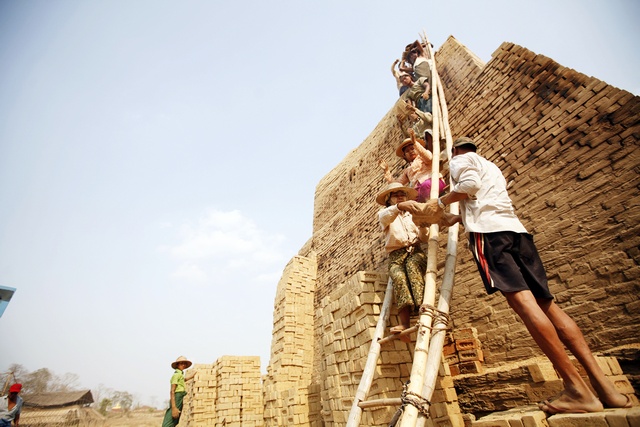A national committee tasked with fixing a minimum wage for workers in Burma says it aims to complete a survey on the issue within two months.
Labour representative of the Committee to Specify the Minimum Wage, Naw Aung, said that at their fifth meeting in Naypyidaw on Thursday the committee’s chairman, Labour Minister Aye Myint, urged his colleagues to reach a conclusion.
“Minister Aye Myint stressed that committee members must finish the survey in two months’ time, and also meet with workers and employers on regional levels to collate options on the minimum wage,” said Naw Aung.
“Based on findings in the survey and suggestions from workers and employers, we will correlate the findings with commodity price indices and then decide the minimum wage.”
The survey was launched on Friday, 19 December.
The speaker of the Burmese parliament, Shwe Mann, had on 13 December stressed the need to fix a minimum wage at a meeting with workers, employers and government ministry officials.
According to official accounts, Burma’s legal minimum wage is currently set at 15,000 kyat (US$15) a month for salaried public employees and 500 kyat ($0.50) per day for day labourers. However this is widely ignored throughout Burma and there is little if any enforcement to guarantee employers will pay minimum wage levels.
[related]
Neighbouring Thailand has a fixed minimum wage of $9.14 per day, but Thai businesses are widely known to underpay Burmese and other migrants in sectors such as construction, agriculture, fisheries and factory work. Some two million Burmese work in Thailand.
Malaysia has a legal minimum daily pay of $7.96- $8.96, Cambodia $3.23, and Laos just $1.41.
International Labour Organisation Liaison Officer, Steve Marshall, said in an email to DVB on Tuesday: “The minimum wage is normally established on basic living costs – taking account of the required income for an average family to live in relative dignity.
“The factors to be considered in setting [a minimum wage] are where it fits in context of the social protection floor concept, social security and enterprise level employment contracts/collective bargaining, etc. The government [should also] brief employers and workers on the research plan they have developed to inform the decision-making process.”
The Irrawaddy last month cited Myanmar Trade Union Federation (MTUF) chairperson Aung Lin as saying the MTUF had conducted its own survey in pilot areas in July 2013, the results of which were shared with the national minimum wage committee.
He said the MTUF suggested a daily minimum wage be set at 7,000 kyat (US$7) for a household of three people, though he noted that the Labor Ministry disregarded the findings.



